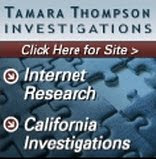News editors need to educate reporters and urge them to file more freedom of information requests, he told the New England Associated Press News Executives Association. They also need to report on their findings in ways that matter to real people, such as writing about a citizen's struggle to find out through government records about toxic chemicals in the dump near her home, he said.Investigators should educate their attorney clients on the importance of using the federal Freedom of Information Act and your state's public records act. One problem is that lawyers are not prepared to litigate this issue when access is denied, probably because they're focused on the primary case, and they don't know about public access law. This is where you can draw on the experience of the freedom of information organizations that litigate on open government issues. Find one in your state and become a member. Public records advocates by state
Pat Stith, a Pulitzer Prize winning reporter for The News & Observer in Raleigh, N.C., said that once state and local government officials know a news organization will go to court every time, it rarely has to. Reporters should be armed with a handbook on their state's public access laws and ask every government official who refuses a records request to show them where the law allows the record to be kept secret, he said.Here are some news stories that have appeared in the past week on this topic:
Same old, sad story on public records denied
Office finds public often improperly denied access to records, meetings
Sheriff probes tussle over public records
Public access to records a mixed bag in South Dakota
[Technorati tags: public records
information sources
information access]




